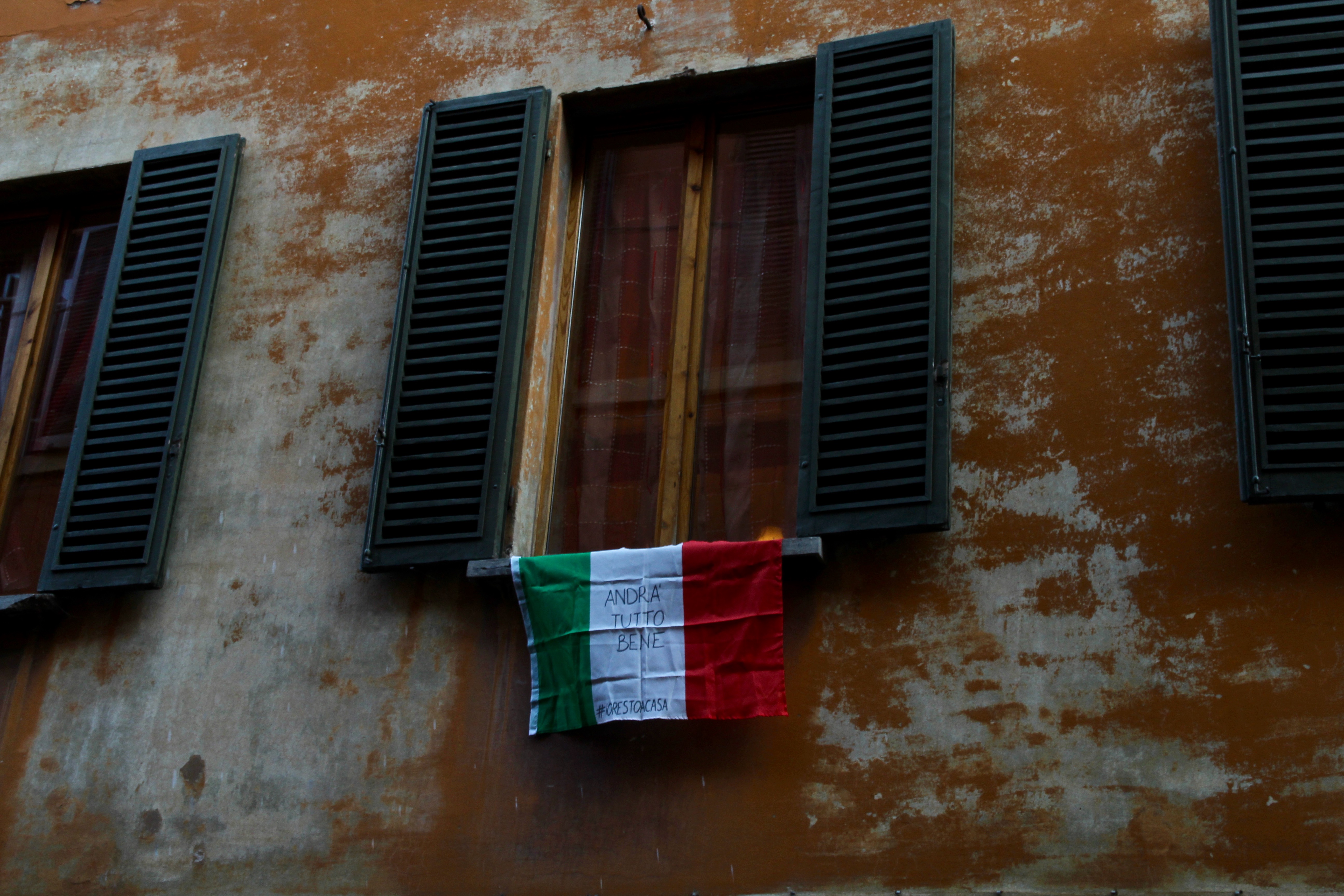Since its outbreak, the coronavirus, or COVID-19, has caused a wide-sweeping wave of devastation. As of March 23, Italy reported the highest toll of infections and deaths outside of China. However, this crisis, which can be seen as humanity’s worst national emergency since the last world war, has triggered a sense of unity among Italians.
The first case of the coronavirus was reported in December 2019 in Wuhan, China. As the virus spread to countries outside of mainland China, the outbreak was declared a Public Health Emergency and was considered an international concern by the World Health Organization (WHO) in late January. It wasn’t called COVID-19 until Feb. 11, which stands for “coronavirus disease 2019.” It was classified as a pandemic on March 11, which the Center for Disease Control and Prevention (CDC) characterizes as “a global outbreak of a new virus [that] can spread between people sustainably [and] because there is little to no pre-existing immunity against the new virus, it spreads worldwide.”
So far, experts’ understanding of how the virus spreads and will develop is still very limited. Only a small number of patients require intensive care, and studies by the CDC in China have shown that 81 percent of the people who contract the virus do not become critically ill. However, people with previous health conditions, as well as the elderly, are at a much higher risk. In Italy in particular, on March 23, out of a total of 59,138 infected, 0.09 percent of the population, 5,476 have died. As of March 21, 2,857 patients were in intensive care units. The epicenter of the pandemic is Bergamo, in the Northern region of Lombardy.
Since the outbreak exploded in Italy in mid-February, Italians have essentially been under house arrest and public life has come to a halt. Patient one was brought into intensive care in Lombardy on Feb. 20. Three days later the number of people who tested positive reached over 100 and 11 towns in the North were sealed off with police and military checkpoints, creating zone rosse, or red zones. Residents are only allowed to leave or enter the towns if they fill out a special document explaining the timing, destination, and objective to authorities and receive permission. On March 8, after more than 7,000 people had been infected, the Italian government restricted movement for about one quarter of the population in Northern Italy – essentially crippling the country’s economy. Since March 10, Prime Minister Gisuseppe Conte has put the entire Italian population of more than 60 million under lockdown and imposed a 6 p.m. curfew. People are banned from traveling, public events and schools have been canceled, and all unessential public places have been closed. Even jogging has been banned.
The country is also restricting large gatherings such as traditional funeral services. This is devastating for people in the South, especially in Sicily. Funerals are a huge part of Italian culture. In fact, 48 people in Sicily now face up to three months in jail for trying to run a funeral celebration. All sectors of public life are overwhelmed to such an extent that Italians are now turning to the military for help. The army had to step in to transport bodies to other locations, because cemeteries in the northern Italian Lombardy region are swamped. Originally the nation-wide quarantine was supposed to last until April 3, but now this end date will be extended for an unknown time.
Officials believe that one reason for the large outbreak in Italy may be that the virus spread undetected for several weeks and by the time the first cases were registered, the chains of transmission couldn’t be contained anymore. Italy also has one of the world’s oldest populations, which is a factor playing into COVID-19’s high mortality rate and death toll in the country.
Italy’s health care system is increasingly strained by the high number of infected patients seeking care. On March 10, a photo of Italian nurse Elena Pagliarini that pictured her collapsed from exhaustion before the end of her shift circulated around the world.
Massimo Galli, the director of infectious diseases at Milan’s Sacco University hospital, said in an interview with the New York Times, “The outbreak has put hospitals under a stress that has no precedents since the Second World War.”
Due to a shortage of equipment, resources, and staff, doctors and nurses are being forced to make decisions on who to treat and who to leave to die. This situation shows that even in developed countries with good healthcare systems, hospitals are swamped and staff is forced to make extraordinary decisions. Abandoned spaces and inflatable disease tents are having to be converted into intensive care units.
Yet Italians have been showing incredible strength and unity throughout this crisis. Nationwide, people have started chanting the national anthem, playing the piano and other instruments, singing, and using household items to make music from their windows, balconies, and rooftops. In Naples and Sicily, neighborhoods are filled with the sound of traditional southern songs accompanied by accordion and tambourine. Opera singers in the North serenade neighbors from their apartments. At 6 p.m daily, the hour when Italy updates the numbers of the sick and the dead, citizens sing the national anthem.
These acts of gratitude and unity have served to keep up peoples’ spirits and prevent a sense of isolation, which inevitably results from being locked away from the rest of the world within one’s own four walls.
Italians have even taken to their balconies, windows, and rooftops to applaud doctors and health care workers who are risking their lives daily. These practices have served as an inspiration and are being copied by other countries such as Spain. All over Italy, signs are appearing on balconies, shuttered storefronts and in public squares with the words “Tutto andrá bene”: everything will be fine.
Emma Santachiara, a 73-year-old woman in Rome, who was interviewed by the New York Times states: “It was from our hearts, to say thanks and show that we can get past this…it’s a moment of joy in this moment of anxiety.”
The Italian media started reporting a sharp increase in sales of the Italian flag, a sign that this crisis seems to spark patriotism. And this does not mark the only positive outcome of the nation’s lockdown. Over the past week the usually green water in the canals in Venice has started to turn clear. Swans have started to return to the canals, and without the gondolas, one can actually see fish swimming in the water now. In other parts of Italy, people have reported seeing dolphins, boars, and other animals.
TheSpaceAcademy.org posted a video of the canals on Twitter and said:
“After a week of lockdown…The canals in Venice are all clear and full of fishes. Kinda gives you the idea what will happen to Earth without Humans!”
(Picture Credit: Wikimedia)






Be First to Comment